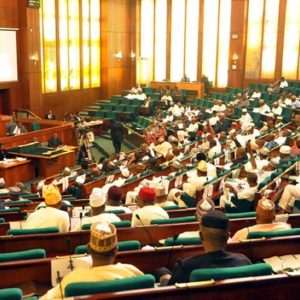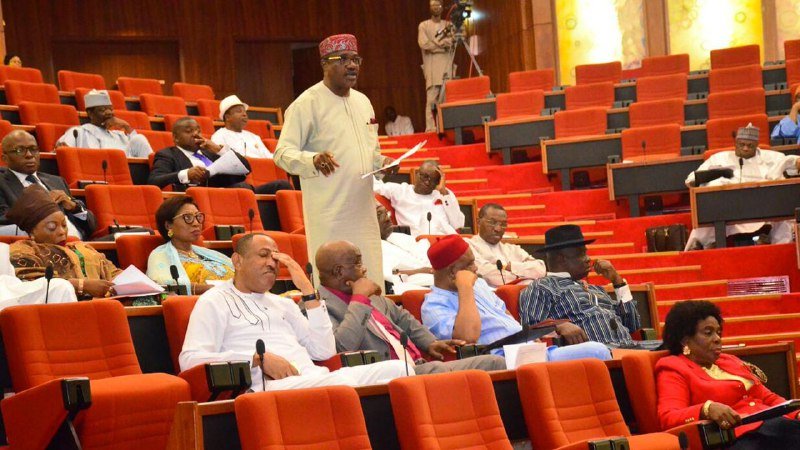Nigerians couldn’t hide their displeasure and angst at the 2021 national budget which has its highest allocation to be a whopping N128 billion allocated to Nigerian Legislators at the federal level, a body of 465 people, as against the N46 billion allocated to the healthcare sector, which expectedly should cater for 200 million people.

A potpourri of emotions was further fuelled by the recent publication of the current remuneration structure of the members of the National Assembly which Nigerians have termed -outrageous, excessive and a gross misappropriation of the country’s revenue.
Noteworthy it is to state that Nigerian legislators are amongst the highest-paid political public holders in the world with a salary structure of about N29 million, including allowances.
In a country that has N30,000 as its minimum wage, it would take 82 years for a minimum wage earner to earn a senator’s one month’s salary. Yet, political functionaries are said to be “our servants”.
In the United Kingdom, an average worker will get the same amount as a member of the parliament in five years and one month, while on the green continent, it takes about six years.
Comparatively, the United Kingdom has a Gross Domestic Product, GDP, of $2.638 trillion and an expected per capita income of $39,800 before the end of the year, according to the Trading Economics global macro models and analyst.
Nigeria boasts of a GDP of $250 billion and an expected capita income of $2,250. In spite of the low GDP ratio and Per Capita Income of Nigeria compared to other nations of the world, it still affords to pay her senators a ludicrous amount of money.
It is a fact that the gross earnings of Nigerian legislators are obscenely disproportionate compared to other public sector workers and officials in the country. The biggest source of the opacity in the salary structure of Nigerian legislators is in their allowances.
One that is often ridiculed is the “hardship” allowance. Why would a choice to serve your country underwrite “hardship”?
This is something Nigerians have struggled to wrap their heads around. In 2019, the chairman of the Nigeria Labour Congress, NLC, at a press conference in Abuja opined that “Nigerian political office holders are over-pampered”, a devious innuendo at the various extravagant perks that accrue to the offices.
Concerning the issue of the salary review proposed by the Revenue Mobilisation Allocation and Fiscal Commission, Mr. Ayuba Waba was of the opinion that there should be a downward review of the salary structure of political holders. He stated:
“In South Africa, the margin between the minimum wage and what a politician earns can be determined because there are imperial data to arrive at the differential. In our own case, what is the differential?”
The grouse of the masses about the outrageous emolument of political officers is spurn out of the parlous state of the nation’s economy, amongst other things. It is no news that Nigeria is about to witness another recession, an aftermath of the COVID-19 pandemic.
As such, prudence in revenue allocation and salary structure reviews that reflect the current economic realities are needed. The country has plunged deeper into the pits of debt. In September 2020, the Debt Management Office announced Nigeria’s total public debt rose by N2.38 trillion to reach N31.01 trillion.
This further underwrites the deplorable state of the nation’s economy, and it also underpins the need for a prudent and economic reflecting revenue allocation formulae and salary structures. It is a known fact that most of the political office holders are not fresh graduates or rookies who are just starting out in life.
They are well made professionals and civil servants who were already millionaires before appointment or election. To validate my point, let’s take a cursory look at some political office holders who have declared assets in times past.
Shehu Sani, a former senator who represents Kaduna Central senatorial district declared an asset of N22 million in his bank accounts, two residential houses in Kaduna, two houses under lease in Kaduna, two uncompleted office apartments in Kaduna, one residential house in Abuja, one family inherited house in Kurfi, Katsina State, and one family-inherited house in Minna, Niger (a wealth he has acquired before taking up a senatorial seat).
Read Also: JUST IN: Nigeria Officially Moves Into Worst Recession Since 1987
The erstwhile Senate president before his governorship stint in Kwara State in his declaration of assets stated that he had N2.5 million as cash at hand, and a total of N51 million in various Nigerian banks. He was also worth £2.9 million and had $400,000 lodged in some foreign banks at the time and several movable and immovable properties across the nation.
Note that the figures above were extracted from his Declaration of Asset form in 2003. Fast-forward 12 years, he became the Senate president. These instances are just samples of the worth of our political office holders.
They were accomplished professionals before joining politics. Thus, the extant remuneration scale is on the high side and quite frankly, a waste of the country’s resources. Occupying a political office is a call to service, not an avenue for personal aggrandisement.
According to the 2021 budget, Nigeria’s Capital Expenditure (monies for infrastructural development, creation of assets like schools, hospitals, etc.) is a mere 21 per cent of the total budget, while its Recurrent Expenditure (monies used for remunerations, interest payments, subsidies and transfers) is a whopping 79 per cent of the total budget.
Read Also: Surviving the Harsh Economic Realities of Post COVID-19
This explains the reason the nation is largely deficient of adequate infrastructural facilities and why its development is at a slow pace. The body saddled with the responsibility of “determining the remuneration appropriate for political officer holders, including the President, Vice-President, Governors, Deputy Governors, Ministers, Commissioners, Special Advisers, legislators” is the Revenue Mobilisation Allocation and Fiscal Commission, RMAFC – Section 32 (d) part 1 of the Third Schedule to the Constitution of the Federal Republic of Nigeria.
RMAFC was established in 1989 with the functions, among others, of monitoring the accruals and disbursement of revenue from the federation account and reviewing, from time to time, the revenue allocation formulae and salary structure to conform with changing realities. It is no doubt that RMAFC has not done a good job in performing its duties.
The last review carried out by this body was in 2015. Nigeria has since then plunged deeper into recession, and it is expected of RMAFC to have carried out another review, since they are empowered to carry out “time to time reviews conforming with changing realities”.
The body needs to perform its duties more effectively, and most importantly in ways that reflect the current economic realities. In the determination of appropriate remuneration for political office holders, the commission must “indeed” utilize the prevailing macro-economic variables at every given period to arrive at realistic salary structures.
Some of the variables should include: inflation rate, Gross Domestic Product Ratio, Per Capita GDP, Exchange Rate, Cost of Living index, Crude Oil Production, Gross National Revenue, Recurrent and Capital Expenditure Ratio, etc.
Source: Vanguard
Post Disclaimer
The opinions, beliefs and viewpoints expressed by the author and forum participants on this website do not necessarily reflect the opinions, beliefs and viewpoints of Anaedo Online or official policies of the Anaedo Online.

